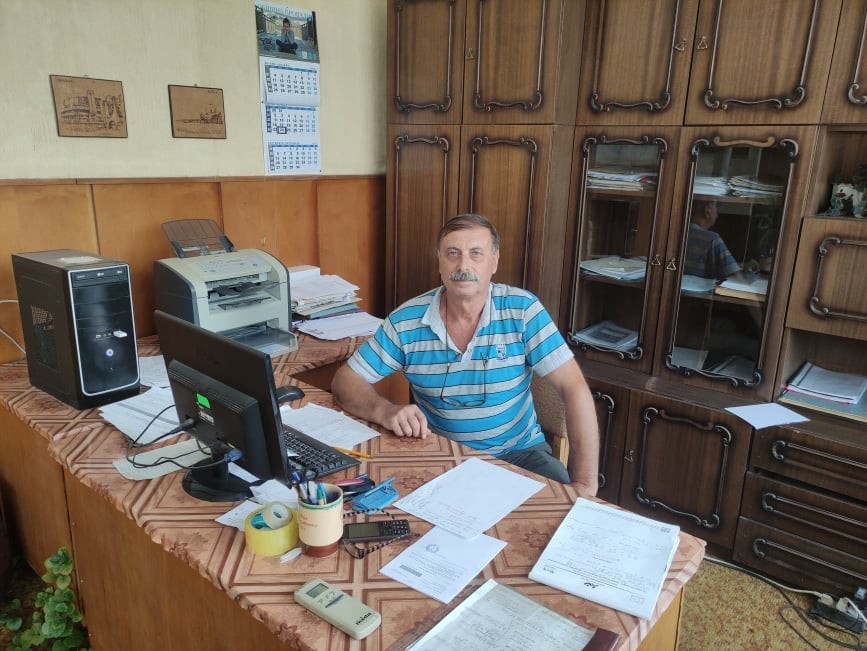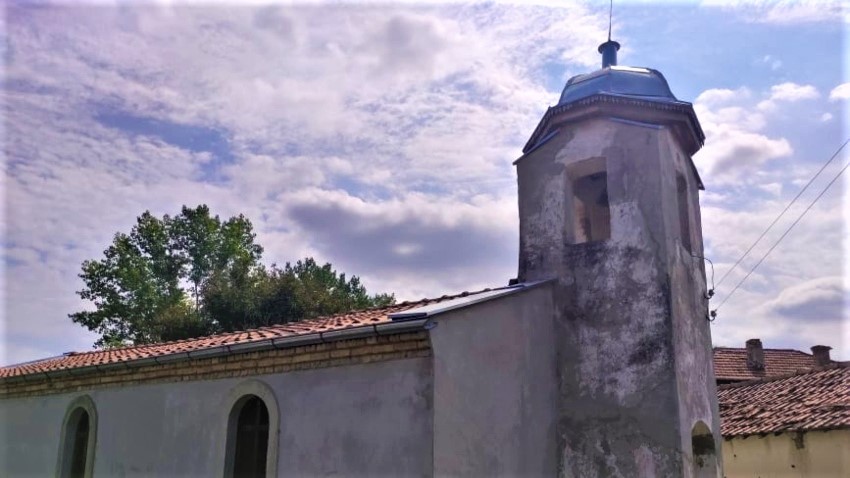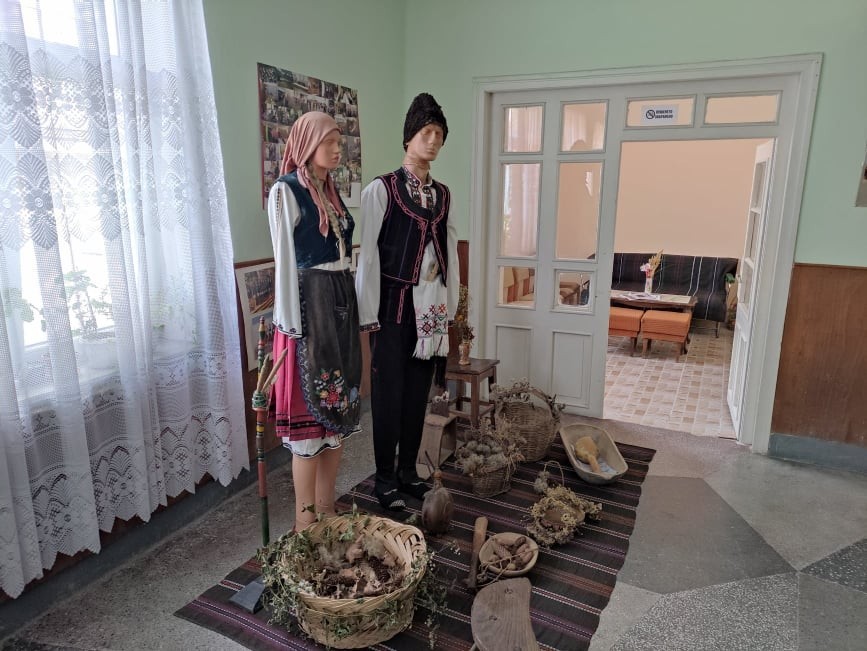The village of Komarevo is located in the northeastern part of the country, just 10 kilometers to the south of the town of Provadia, on the right bank of Glavnitsa river.
Though it may seem nondescript, Komarevo actually has a history going back centuries. The village mayor, Dimo Todorov, lives opposite the village hall where the mayor’s office is. He used to be a primary school teacher, but the local school closed down in 2008, and things changed dramatically:

“The young people left and went to live in the town, just the old people stayed behind. The village is going to rack and ruin, people have no means of livelihood so they are leaving. All of the young people that were here – they all left, some emigrated. There are just two stores left. There is a chitalishte (community culture club), and a pensioners’ club but nobody goes there anymore. Because of the coronavirus people are afraid to go out, they don’t even go and sit on the benches in the street to chat as they used to. We don’t have a budget, 1,500 Leva (750 euro) a year is what the village is allocated by Provadia municipality. We spend it on lightbulbs, on repair work. That’s how it goes.”
Yes, the equivalent of 750 euro is what Dimo Todorov can spend on the village for a year. It doesn’t go a long way to clean and sweep the streets in the village centre, and that’s it. Some may wonder what the village’s name has to do with mosquitos – in Bulgarian the word for mosquito is komar. According to one legend, Glavnitsa river, which passes near the village, used to flood the entire valley because of its small angle of inclination. Swamps formed, and there, mosquitos started to breed. Mayor Dimo Todorov has another version – according to the village’s written records from the time of Ottoman rule, komarnik was the name given to a small shack for living. The exact date when Komarevo was founded is not known though there is evidence that during the Ottoman invasion at the end of the 14th century it existed as a small village of 15-20 houses, with century-old deciduous forests all around.
The village once had a church, St. Athanasius, built in 1870, but it had to be torn down because its walls were crumbling.

“As there is no money now it is not plastered on the inside, but there are icons from the old church and on feast days, if anyone wants to, they can go and light a candle. There is no money to do anything else,” Dimo Todorov says. “The church bell is rung from the outside – people have put up a rope, but it is now frayed.”
Opposite the village hall there is a memorial plaque with the names of 50 soldiers killed in the wars from 1912 to 1918.
The chitalishte, with its close to 900 books, is also part of the village’s past. It was founded in 1923 and named after Paisius of Hilendar, the man who laid the foundations of the Bulgarian National Revival when he wrote “Slav-Bulgarian History”. At the chitalishte there is a grand hall that can accommodate 250, but that too has not been used for a long time. The lobby has been turned into a museum of a kind displaying national costumes and various tools used in the past. There are a lot of certificates from singing contests as well – the village is famous for its vocal ensembles which have taken part in many national festivals and competitions.

But all that is in the past when the village was full of life and the land was farmed. Now, the battle is to survive, and the pensions are meagre. A doctor comes to the village once or twice a week, if you don’t have a neighbor to take you to the doctor you’re done for.There are 70 empty houses which are slowly falling apart, the building of what was once the local school was bought by foreigners, but not long ago, it burnt down. That is why there is nothing to keep young people in villages like Komarevo.
Alexander Yordanov, BNR-Varna
For the 30th consecutive year, the Bulgarian Posts organize a contest for the most beautiful letter to Santa Claus. Letters must be sent by 18 December with a stamped envelope "For Santa", the sender's address indicated and postage paid. All..
The Varna Regional Library "Pencho Slaveykov" has acquired a humanoid robot. It was unveiled by the library's director, Radka Kalcheva, during the celebration of the 20th anniversary of the library's American Corner, in the presence of Eric Brasel, the..
1000 participants will take part in the first Burgas Half Marathon, which will take place this Sunday, 24 November. The event will bring together amateurs and professionals of different ages who will compete in three distances - 1 km, 10.5 km and 21 km...
According to the Annual Report on the Health Status of Bulgarian Citizens for 2023, t he main cause of death in Bulgaria is diseases of the..
At the Bulgarian Embassy in London, Prof. Bettany Hughes presented excerpts from the new BBC series - Wonders of Bulgaria. Prof. Bettany..
Over 3.5 million Ukrainians have arrived in or passed through Bulgaria since the beginning of the war. Nearly 200,000 people have found temporary..

+359 2 9336 661
